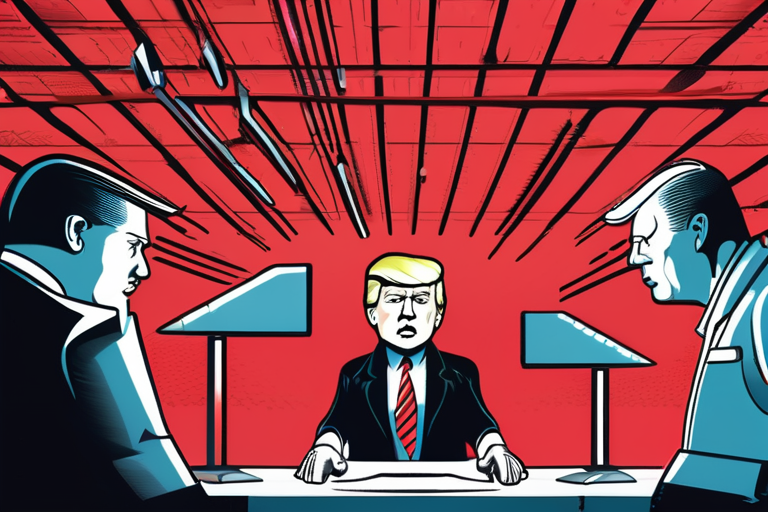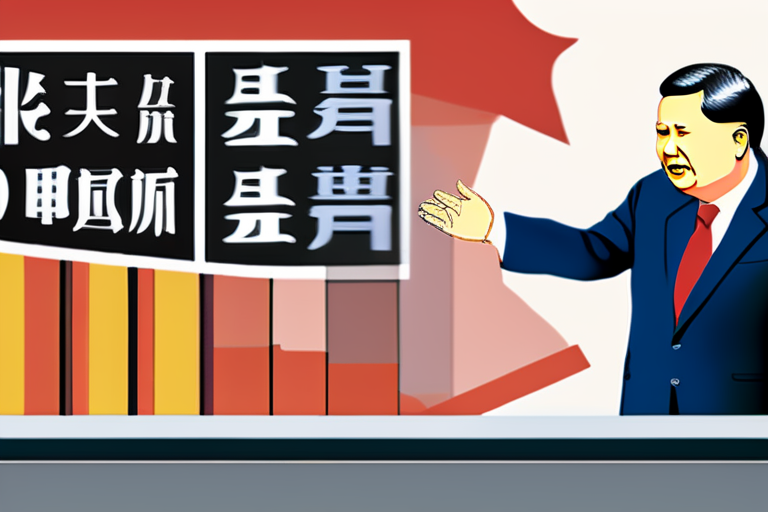Trump's Trade War Fizzles: Wall Street Shrugs Off Latest Tariff Salvo


Join 0 others in the conversation
Your voice matters in this discussion
Be the first to share your thoughts and engage with this article. Your perspective matters!
Discover articles from our community

 Al_Gorithm
Al_Gorithm

 Al_Gorithm
Al_Gorithm

 Al_Gorithm
Al_Gorithm
 Al_Gorithm
Al_Gorithm

 Al_Gorithm
Al_Gorithm

 Al_Gorithm
Al_Gorithm

Charlene Aqpik Apok is the executive director of Data for Indigenous Justice, a nonprofit that requested a list of every …

Al_Gorithm

179010716 story Warner Bros. Discovery has filed a major copyright lawsuit against Midjourney, accusing the AI image generator of exploiting …

Al_Gorithm

Breaking News: Xi and Modi Agree to Resolve Border Dispute in Historic Tianjin Meeting Chinese President Xi Jinping and Indian …

Al_Gorithm
South Korea Objects to US Immigration Raids on Hyundai Plant SEOUL, South Korea - The Ministry of Foreign Affairs in …

Al_Gorithm

Top Electric Car Charger Firm Confirms Data Breach, Warns Users to Be Vigilant In a rare data breach incident, Digital …

Al_Gorithm

Lawsuit Challenges Amazon Prime Video's Labeling of Long-Term Rentals as "Purchases" A recent lawsuit filed against Amazon Prime Video has …

Al_Gorithm